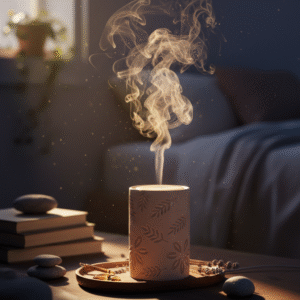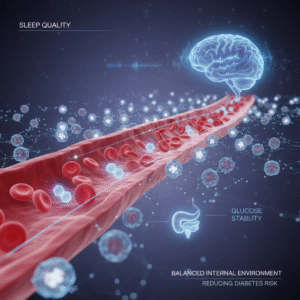Discover why sleep is difficult for night shift workers and learn effective management strategies to improve sleep quality. Find out more about shift work disorder symptoms and treatment options.
Dr. Mark R. Smith, a postdoctoral fellow at the University of Colorado Boulder, sheds light on the detrimental effects of night shifts on sleep. Our biological clocks are naturally wired to be awake during the day and asleep at night, making it inherently challenging for shift workers to align their sleep schedules with their work hours. This misalignment between the body’s internal clock and external work demands can lead to various sleep disturbances and health issues, emphasizing the need for effective management strategies for shift workers.
The Impact of Night Shifts on Sleep
Circadian Rhythm Disruption
The human body operates on a circadian rhythm, a 24-hour cycle that regulates our sleep-wake patterns, hormone production, and other physiological processes. When individuals work during the night and try to sleep during the day, they are essentially fighting against their biological clock’s natural inclination. This disruption can lead to sleep difficulties, decreased sleep quality, and an increased risk of developing shift work disorder.
Variability Based on Chronotype
Chronotype refers to an individual’s natural preference for being awake or asleep at specific times of the day. People are classified as either morning larks (early risers) or night owls (night-time enthusiasts) based on their chronotype. Those whose chronotype aligns with their work schedule may adapt better to night shifts, while individuals with conflicting chronotypes may struggle to maintain healthy sleep habits. Understanding your chronotype can help tailor sleep strategies to better suit your natural preferences and optimize sleep quality.
Challenges of Shift Work Disorder
Shift work disorder is a circadian rhythm sleep disorder characterized by difficulties in adjusting to work schedules that conflict with the body’s internal clock. While treatments such as bright light therapy, sleep medications, and melatonin supplements are available, addressing the root cause of misalignment between the biological clock and work shifts remains a significant challenge. Shift workers often find themselves navigating constant sleep disruptions and fatigue due to the inherent conflicts between their work hours and their body’s natural sleep-wake cycle.
Recognizing Sleep Problems in Shift Workers
Common Symptoms
It’s essential for shift workers to be vigilant about identifying potential sleep problems early on. Common symptoms of sleep disturbances in shift workers include:
– Excessive sleepiness while trying to stay awake during work hours
– Fatigue and reduced alertness during night shifts
– Difficulty falling asleep or maintaining sleep when attempting to rest during the day
-Differential Impact
The impact of night shifts on sleep can vary depending on individual factors such as chronotype, age, and overall health. While some individuals may adapt relatively well to night shift work, others might experience considerable challenges in maintaining healthy sleep patterns. Recognizing the differential impact of shift work on sleep can help individuals proactively address sleep-related issues and seek appropriate interventions.
Managing Shift Work Disorder
Consultation with a Sleep Specialist
If you’re experiencing persistent sleep difficulties related to shift work, consulting a board-certified sleep physician can provide valuable insights and personalized treatment options. A sleep specialist can diagnose shift work disorder, assess your sleep patterns, and recommend targeted interventions to improve sleep quality and overall well-being.
Treatment Options
Effective management strategies for shift work disorder may include:
– Bright light therapy: Exposure to bright light during specific times of the day can help regulate your circadian rhythm and promote wakefulness during night shifts.
– Sleep medications: In some cases, prescription medications may be prescribed to facilitate sleep initiation or maintenance, especially for individuals struggling with severe sleep disturbances.
– Melatonin supplements: Melatonin, a hormone that regulates sleep-wake cycles, can be used to support the body’s natural sleep patterns and promote better sleep quality for shift workers.
Conclusion
Navigating the challenges of sleep on night shifts requires a comprehensive understanding of circadian rhythms, chronotypes, and effective management strategies for shift work disorder. By recognizing the impact of shift work on sleep quality and implementing tailored interventions, individuals can optimize their restorative sleep and enhance their overall health and well-being. Prioritizing healthy sleep habits and seeking professional guidance from sleep specialists can empower shift workers to overcome the obstacles associated with irregular work schedules and achieve restful and rejuvenating sleep.
Frequently Asked Questions
How can bright light therapy help improve sleep for night shift workers?
Bright light therapy involves exposure to artificial light sources that mimic natural sunlight to regulate the circadian rhythm and promote wakefulness during night shifts. By incorporating bright light therapy into their daily routines, night shift workers can enhance alertness, reduce sleep disturbances, and optimize their sleep-wake patterns.
What role does melatonin supplementation play in managing shift work disorder?
Melatonin supplements can support the body’s natural sleep-wake cycle by enhancing melatonin levels in the bloodstream. For shift workers struggling to fall asleep or stay asleep during the day, melatonin supplementation can help synchronize their internal clock with their work schedule, leading to improved sleep quality and better overall health outcomes.
Sources
- Circadian Rhythm Sleep Disorders: https://www.nhlbi.nih.gov/health/sleep/circadian-rhythm-disorders
- Shift Work Disorder: https://www.sleepfoundation.org/shift-work-disorder
- Melatonin and Sleep: https://www.ncbi.nlm.nih.gov/books/NBK534823/








